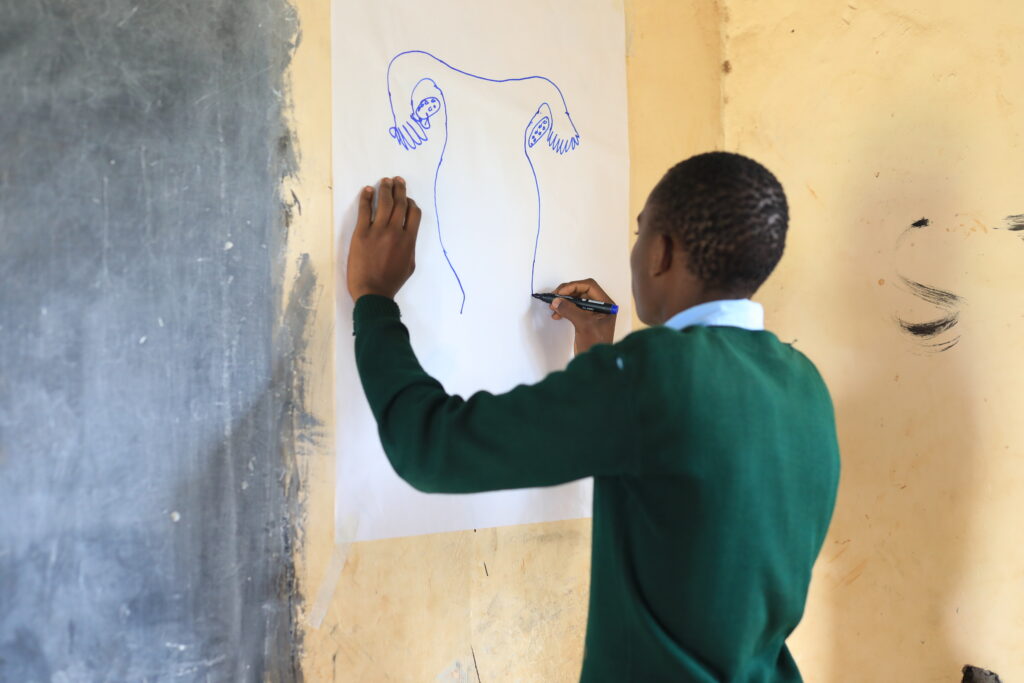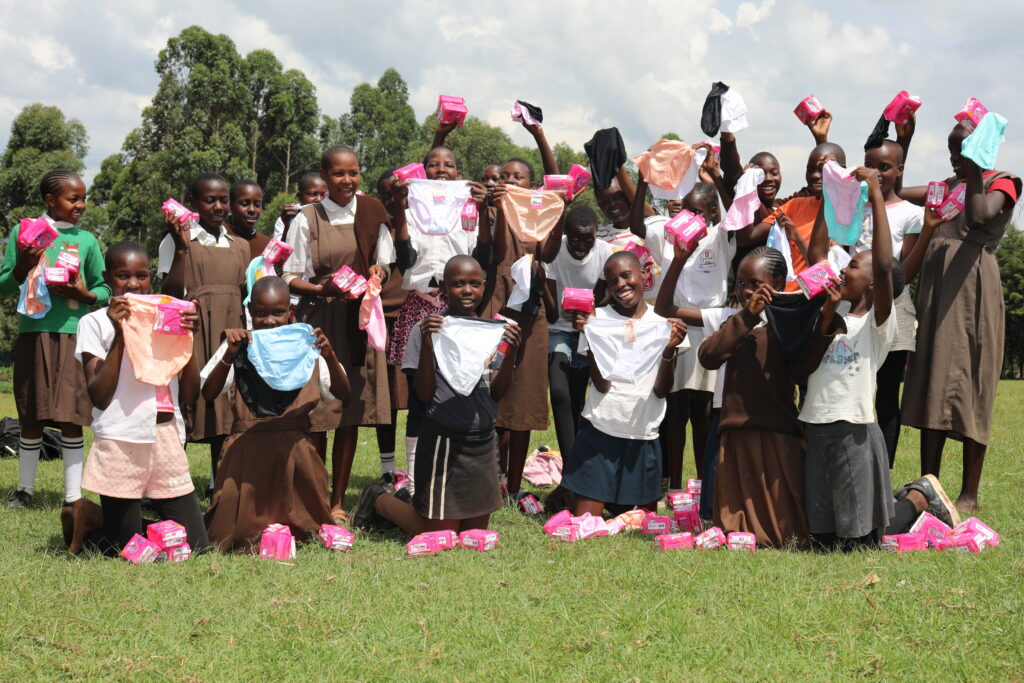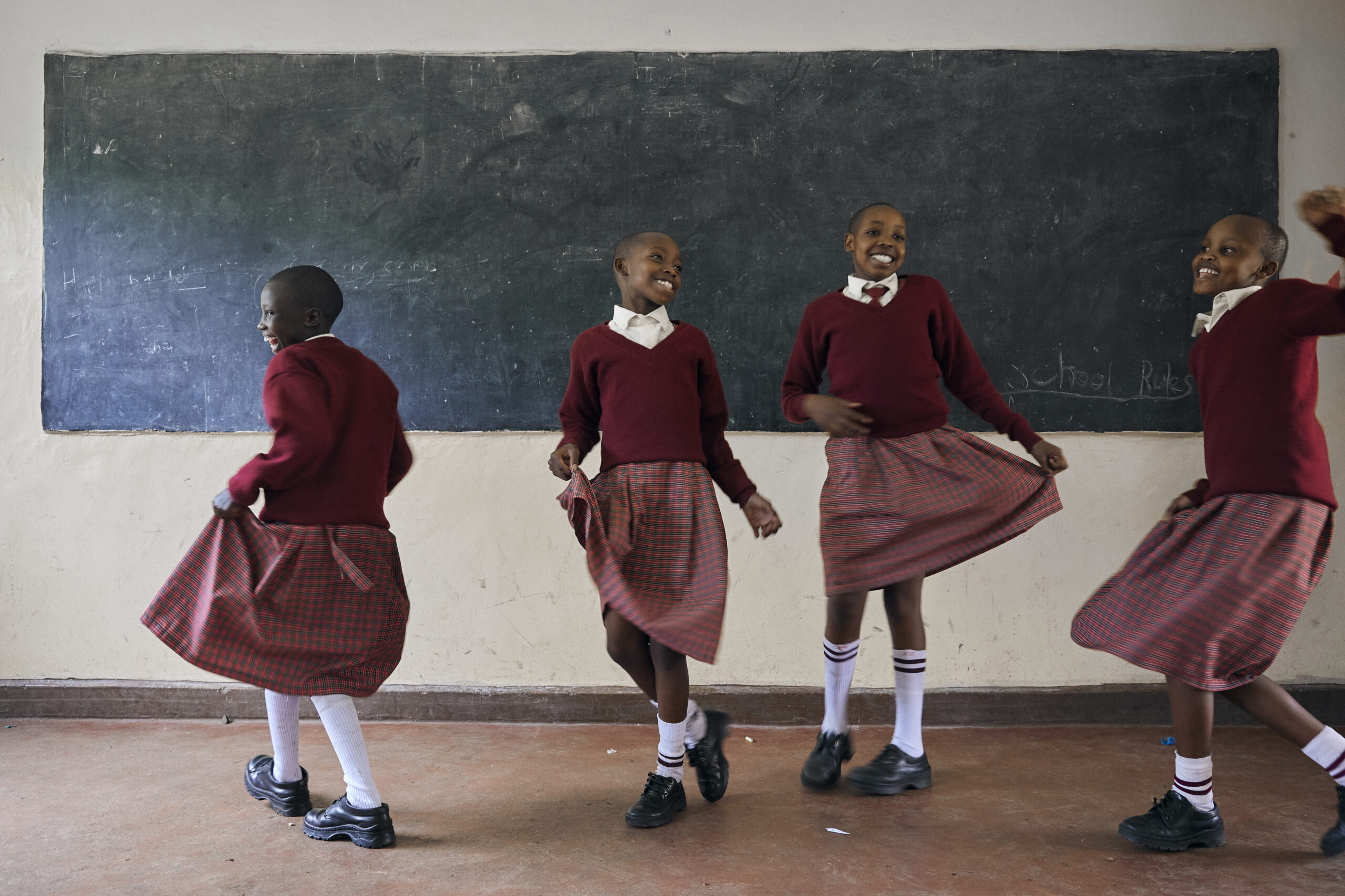Menstrual Hygiene Day, observed annually on May 28, marks a global celebration intended to raise awareness about the importance of prioritizing menstrual health and hygiene (MHH).
Women and girls all over the world experience shame regarding their natural menstrual cycles and struggle to hygienically manage their periods. Many are never even taught about and don’t understand their menstrual cycles, causing them to engage in unsafe practices such as using improvised period products. Menstrual Hygiene Day aims to raise awareness, educate, break harmful taboos, and urge leaders at all levels to prioritize MHH.
This year’s Menstrual Hygiene Day theme is #PeriodFriendlyWorld. What does it mean to live in a #PeriodFriendlyWorld? At Kakenya’s Dream we believe it’s a world without stigma surrounding menstruation. A world in which everyone, regardless of socioeconomic status or geographic location, has equitable access to the products, education, and infrastructure they need to manage their cycles with dignity. A world where menstruation is embraced as a natural and integral part of life, rather than shrouded in secrecy and shame.
At Kakenya’s Dream, we are breaking this stigma through community sensitization workshops that challenge health taboos and educate broadly on the importance of menstrual hygiene. In the communities we serve, healthcare resources and education are severely lacking. This means people often cannot access accurate information about their bodies, particularly around sensitive topics like menstrual health. We speak with girls about what to expect during menstruation, how to manage their periods, and address any concerns they may have. But we don’t stop there. We also talk to boys, parents, and community members to correct widespread misconceptions about menstruation and encourage collective action to support girls’ needs and promote a safe and healthy environment.

But education is just one piece of the puzzle. We must also address an often-overlooked but prevalent issue: period poverty. Period poverty is defined as the inability to afford menstrual products, and an alarming 65% of women and girls in Kenya are unable to afford period products.
Those experiencing extreme poverty are often forced to make difficult choices between purchasing menstrual products or meeting other basic needs. As a result, many resort to using improvised materials that are unsanitary and unsafe. This can perpetuate feelings of shame and embarrassment that in turn, prevent girls from discussing their menstrual health or seeking out necessary resources to manage their periods safely and hygienically.
The ripple effects of period poverty can be detrimental. Many girls resort to skipping school during their periods, hindering their academic progress. For some girls, the search for sanitary pads and the money to purchase them corners them into dangerous situations. A 2015 study found that one in ten 15-year-old girls in Kenya resorted to survival sex, offering sex in exchange for money to buy period products. This increases a girls’ susceptibility to gender-based violence, sexually transmitted infections, and teenage pregnancy.

By providing girls in our community with menstrual supplies, we are fighting period poverty and curbing these negative effects. Last year alone, we distributed over 28,000 sanitary pads to girls in our programs. To ensure girls throughout the community can easily obtain sanitary pads, we also operate a distribution program that delivers sanitary pads and underwear to girls at our partner schools twice per year. Through this program, we provided underwear to 6,200 girls, and ensured each girl had 8 packages of sanitary pads.
To expand our support, we recently constructed our community’s first-ever youth-friendly health clinic. The Kakenya Health and Wellness Center will open this summer and bridge the healthcare gap in the communities we serve. Offering a wide range of services, including sexual and reproductive healthcare, mental health services, and education regarding menstruation, our clinic aims to ensure that individuals in our community have access to the care and resources they need to thrive.
This Menstrual Hygiene Day, we invite you to join our efforts to raise awareness about menstrual health and end period poverty. On May 31, we are collaborating with the local Transmara West Sub-County Sexual and Reproductive Health Department to host a menstrual hygiene advocacy event. At the event, we aim to provide 300 girls with sanitary kits and distribute 600 pairs of underwear. Help us reach our goal by pledging your support today. Together, we can create a #PeriodFriendlyWorld!

